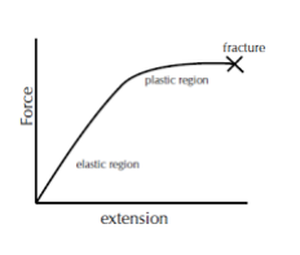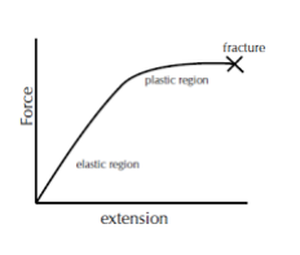|
“What if passion is tied to intensity? Intensity may not be a result of trying to achieve something, it might just be energizing. I am not saying that I don't strive to get somewhere in many of my poses and in life, but sometimes, I just enjoy intensity for the thrill. Therefore, intensity might lead to consistency.â€
Steve Hi Steve, thanks for the feedback. Your ending question is a wonderful one- a great one to ponder within your practice! I have three questions for you regarding intensity:
So glad what I wrote was valuable to you, Michelle Good evening, Michelle.
First off, let me point out that no one is saying that one can’t have intensity from time to time- no one is coming to take it away from you, throw you in the slammer if you get caught indulging in something with intensity. However, for some, it is a form of intoxication that is sought too often, with destructive consequences.
Second, let me suggest that being consistent can be an intense thing itself! I know because two comments I receive are, “Michelle, you are pretty intense,†and “Michelle, you are really consistent.†They are not unrelated.... ​
Okay- so, let’s start with terms and definitions so that we are all on the same page. There is the official definition of “Intense,†complete with its etymology and there’s the common usage of intense here in the United States.
First, the Oxford English Dictionary, for some of us the standard bearer of the language:
And there is the common usage:
​Because Steve gave me permission to use his query for this month’s newsletter, I am going to reply to his question, knowing that it is a question for all of us.
To learn more about what the intention of Steve’s intensity is, let’s also look at the antonyms:
Whether your desire or fear is intensity, you showed up at Aspiration Community Yoga and asked me to teach you. I teach from the perspective of yoga, informed as I am by strength training and Buddhism. Yoga is the practice of equanimity, the yoking of what’s easy and what’s hard, being the space that is held in the container of the two extremes.
But let’s stay in the less than esoteric, metaphysical of why being that space between the two is everyday beneficial to you. Here’s a good one to start with: Flexibility. 
Hooke’s Law The extension of an elastic object, such as a spring, is directly proportional to the force applied, provided that the limit of proportionality is not exceeded. □□ = □□□□ where: - F is the force applied to the spring, □□ - K is the spring constant, □□□□−1 - X is the extension.
​I don’t think any of you ever wished to be less flexible. But what is it to be flexible? Look at the graph and the Hooke's law of physics Hooke's law - Wikipedia. Your muscles work just exactly the same. The sweet spot for flexibility aka plasticity, is not at the point of extreme force or extension. So, if in your endeavor to make yourself more flexible, you are applying as much force as you can, applying as much extension as you can, you are getting in your own way.
Want another practicality for everyday health? Let’s go with a former popular buzz term, still in circulation, parasympathetic vs. Sympathetic stimulation:
​“Mobility requires more parasympathetic stimulation than sympathetic, but needs to build off sympathetic stabilization Long, slow breathing with more of a “release†of breath versus expulsion.†-Dean Summerset, Complete Hip Training
Whether you are dealing with chronic pain, chronic disease, or anger in traffic, practicing so that you can access that long slow breathing when attacked by pain or cut off by another driver will cut down on the chances of flare up or attacks, whether the attack is one’s own immune system, heart, or another human being on the road.
I am going to end with one more- Internal “listening,†aka interoception.
All day, men — no women — took the microphone and spoke. There was always a buzz in the audience, whispers, an audible hum of excitement. Then it was time for John Cage. He walked onto the stage and began to speak, without the microphone. He stood at the center of the small stage and addressed the crowd. He talked, without amplification, and soon people in the audience shouted, “We can’t hear you, use the mic. We can’t hear you.†John Cage said, “You can, if you listen.†Everyone settled down, there was no more buzz, hum or rustling, there was silence, and John Cage spoke again, without the microphone, and everyone listened and heard perfectly.†- At the Microphone, What Would Lynne Tillman Do? And yet the soul, despite its toughness, is also essentially shy—just like a wild animal. It will flee from the noisy crowd and seek safety in the deep underbrush. If we want to see a wild animal, we know that the last thing we should do is go crashing through the woods yelling for it to come out! But if we will walk into the woods quietly and sit at the base of a tree, breathing with the earth and fading into our surroundings, the wild creature we seek may eventually show up. Parker Palmer A Pedagogy of the Soul
’ve had two students ever show up at yoga to calm their thoughts. All others come for corporeal fears and desires. They want the pain to stop, but they can’t figure out what is causing it. They want to be more flexible, stronger, do a handstand or just bend over and clip their own toenails, tie their own shoes, reach overhead and brush their own hair. Despite effective marketing since the arrival of modern yoga, yoga does not work on you as force that changes you from the outside. Rather, it is one of many technologies that can renew the ability to perceive sensations.
Do you know if you are tipping your head back right now? Are you able to discern whether the lower bottom edge of your rib cage is expanding and contracting with each breath? When you go up and down steps, are you paying attention to the hinge or lack thereof of the knees and groin? This is using any of the senses that detect conditions within the body. This is yoga 101 and PhD yoga. This is easily drowned out and found only by finding that “internal quiet†where one can listen for the non-amplified communication of the body that emerges when it is safe to emerge. The therapist job is to slow things down enough so that it becomes obvious how someone is getting in her own way, in order that she may learn to lift the restriction, if she so desires. “ Mark Epstein, ​Going On Being, pg. 25 Comments are closed.
|
Archives
December 2022
|
Proudly powered by Weebly



 RSS Feed
RSS Feed